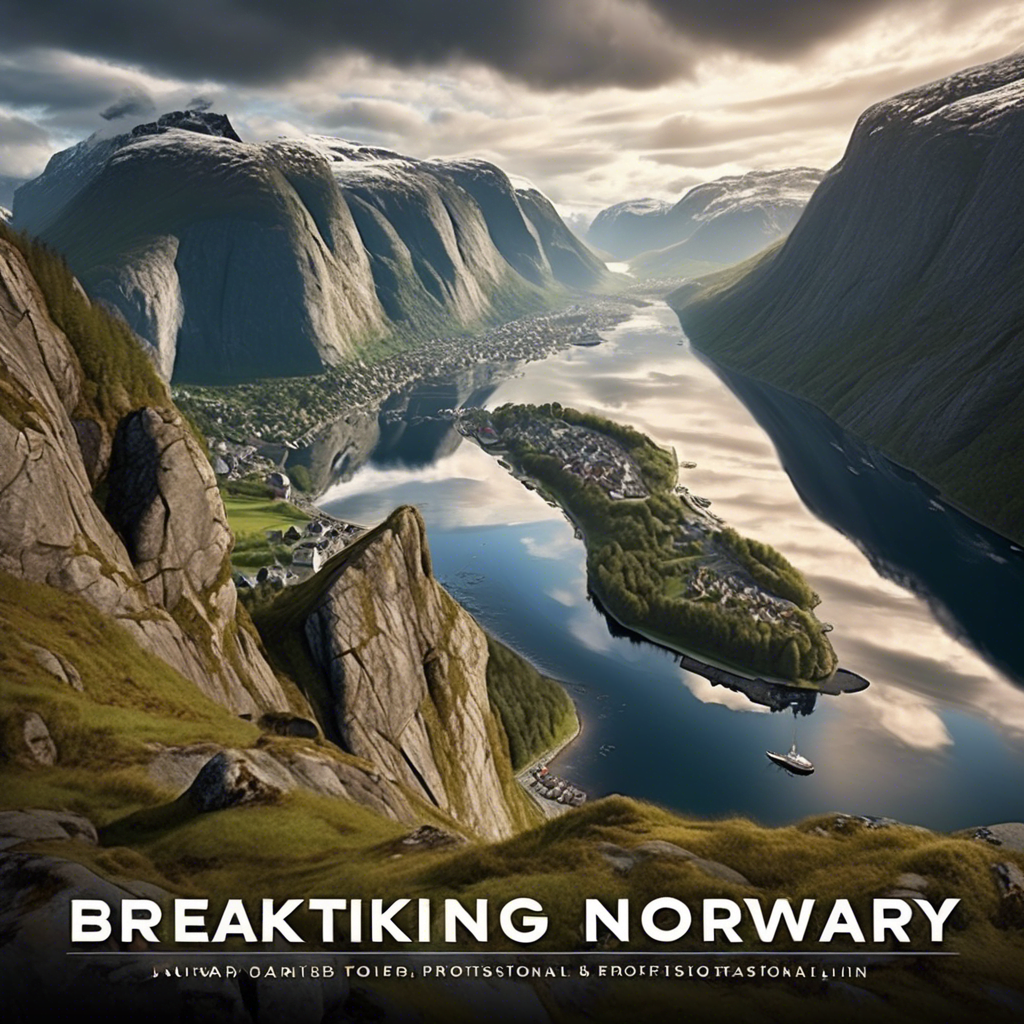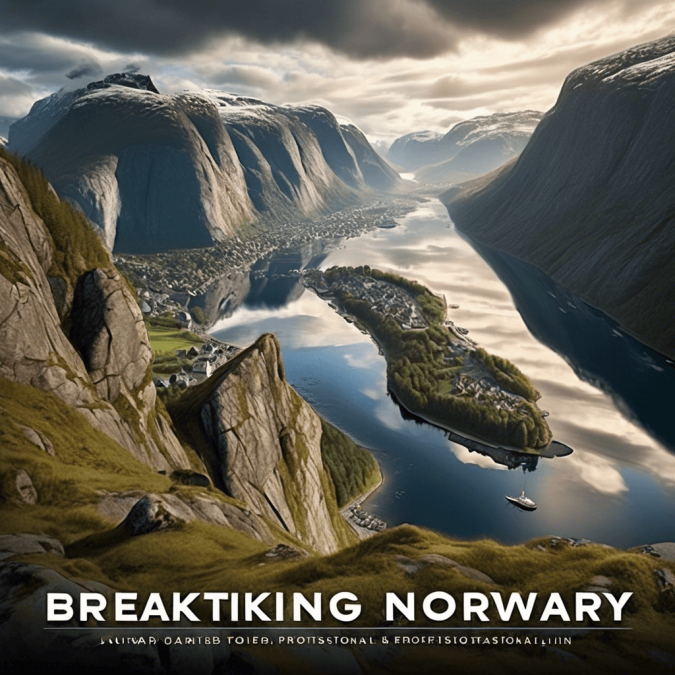
1. Introduction
Importance of studying the history of Norway
Studying the history of Norway is crucial for understanding the cultural, social, and political dynamics that have influenced the country’s trajectory. By examining the past, we can gain insights into the origins of Norwegian identity, the impact of external influences, and the resilience of its people in the face of challenges.
Brief summary of key periods in Norwegian history
Norwegian history can be divided into distinct periods, each characterized by significant events and transformations. These include prehistoric Norway, medieval Norway, modern Norway, and contemporary Norway. Each era has played a crucial role in shaping the nation’s identity and shaping its future.
2. Prehistoric Norway
Geographical and archaeological background
The rugged terrain and pristine landscapes of Norway have provided a rich canvas for archaeological discoveries. The country’s ancient past is marked by a deep connection to nature and a reliance on its resources for survival.
Stone Age settlements and artifacts
The Stone Age in Norway was characterized by the emergence of early human settlements along the coastlines and fjords. Archaeological findings reveal the presence of tools, pottery, and burial sites that offer insights into the lifestyles of Norway’s earliest inhabitants.
Bronze Age cultures and developments
During the Bronze Age, Norway witnessed the rise of sophisticated cultures and the development of metalworking techniques. Bronze artifacts, rock carvings, and burial mounds attest to the creativity and craftsmanship of ancient Norwegian societies.
Iron Age societies and Viking Age expansion
The Iron Age in Norway saw the emergence of powerful chieftains and the expansion of seafaring activities. The Viking Age, in particular, marked a period of exploration, trade, and conquest that left a lasting impact on Norwegian history and culture.
3. Medieval Norway
Unification of Norway under Harald Fairhair
Harald Fairhair, known as the first king of Norway, played a pivotal role in unifying the disparate kingdoms of Norway into a single political entity. His reign marked the beginning of a centralized monarchy and laid the foundation for the future of Norwegian governance.
Christianization of Norway
The Christianization of Norway in the Middle Ages brought profound changes to the religious and cultural landscape of the country. The conversion to Christianity not only altered spiritual practices but also influenced political alliances and social structures.
Black Death and its impact on Norwegian society
The Black Death, a devastating plague that swept through Europe in the 14th century, had a profound impact on Norwegian society. The widespread mortality and social upheaval caused by the pandemic reshaped the demographic and economic landscape of Norway.
Union with Denmark and Sweden
Norway’s union with Denmark and Sweden in the medieval period marked a significant chapter in the country’s history. The political alliances and conflicts that emerged during this time would shape Norway’s relations with its Scandinavian neighbors for centuries to come.
4. Modern Norway
Independence from Denmark in 1814
Norway’s declaration of independence from Denmark in 1814 marked a turning point in the country’s history. The establishment of a constitutional monarchy and the adoption of a national flag symbolized Norway’s aspirations for self-determination and sovereignty.
Industrial revolution and modernization
The industrial revolution in the 19th century brought sweeping changes to Norway’s economy and society. The growth of industries, urban centers, and transportation networks fueled the country’s modernization and laid the groundwork for its future prosperity.
World War II occupation and resistance
Norway’s occupation by Nazi Germany during World War II tested the nation’s resilience and spirit of resistance. The bravery of Norwegian resistance fighters and the solidarity of the population against the occupiers became enduring symbols of Norwegian patriotism and courage.
Post-war reconstruction and economic growth
After the end of World War II, Norway embarked on a period of reconstruction and recovery. The country’s investments in infrastructure, education, and social welfare laid the groundwork for sustained economic growth and prosperity in the post-war era.
5. Contemporary Norway
Establishment of the welfare state
The establishment of the Norwegian welfare state in the mid-20th century represented a commitment to social justice, equality, and public welfare. Norway’s comprehensive social welfare programs, including healthcare, education, and social security, have contributed to a high standard of living for its citizens.
Oil discovery and economic prosperity
The discovery of oil off the coast of Norway in the 1960s transformed the country’s economy and fortunes. Norway’s prudent management of its oil wealth through the establishment of the Government Pension Fund Global has ensured sustainable economic growth and stability for future generations.
Social and political developments in the late 20th century
The late 20th century witnessed significant social and political changes in Norway, including the expansion of civil rights, environmental activism, and the emergence of a multicultural society. Norway’s commitment to democracy, human rights, and environmental sustainability has earned it a reputation as a progressive and inclusive nation.
Norway’s role in international relations and peacekeeping efforts
Norway has played an active role in international relations and peacekeeping efforts, contributing to peacebuilding, conflict resolution, and humanitarian assistance around the world. The country’s commitment to diplomacy, human rights, and international cooperation has earned it respect and recognition on the global stage.
6. Conclusion
Summary of key findings and insights from the project
The project on the history of Norway has provided a comprehensive overview of the nation’s past, highlighting key events, developments, and transformations that have shaped its identity. From prehistoric settlements to modern prosperity, Norway’s history is a testament to the resilience, creativity, and spirit of its people.
Reflections on the significance of Norwegian history
Studying Norwegian history offers valuable insights into the country’s cultural heritage, political evolution, and societal values. By understanding the past, we can appreciate the challenges overcome and the achievements made by the Norwegian people in building a prosperous and inclusive society.
Suggestions for further research and study
Further research on Norwegian history could explore specific themes such as gender dynamics, environmental sustainability, and indigenous rights. By delving deeper into these topics, scholars can gain a more nuanced understanding of Norway’s past and its relevance to contemporary issues and debates.
7. References
1. History of Norway by John P. Gallagher
2. The Viking World: History and Legacy by Stefan Brink and Neil Price
3. Norway: From Prehistory to the Present by Ingrid S. Mathisen
4. The Black Death in Norway: The Norwegian Perspective by Ole Jørgen Benedictow
5. Norway and the Second World War by Poul Villaume
